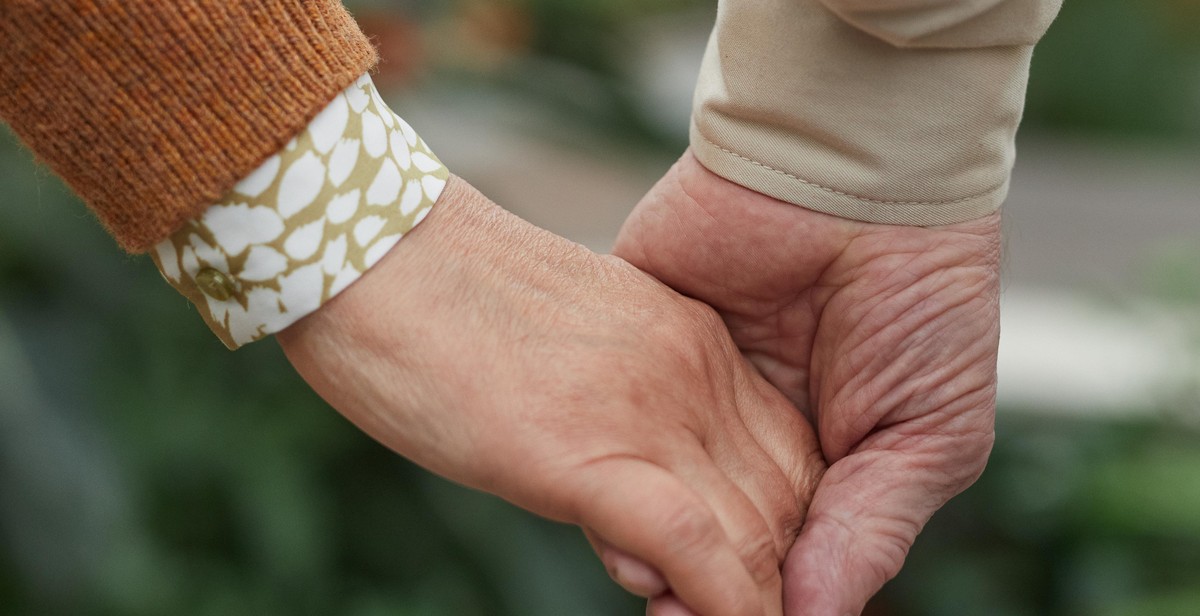The Love Guru’s Guide to a Happy, Healthy Relationship
As a professional article writer and content creator, I have seen many relationships come and go. However, as a love and relationships psychology guru, I have also seen many relationships thrive and flourish. From my personal experience and extensive research, I have put together a guide to help you build a happy, healthy relationship.
The Importance of Communication
Communication is the foundation of any successful relationship. It is important to have open and honest communication with your partner. This means being able to express your feelings, thoughts, and concerns without fear of judgment or rejection. It also means actively listening to your partner and trying to understand their perspective.
The Power of Compromise
Compromise is key in any relationship. It is important to find a balance between your needs and your partner’s needs. This means being willing to make sacrifices for the sake of the relationship. It also means being open to new ideas and perspectives.
The Role of Trust
Trust is essential in any relationship. It is important to be honest and transparent with your partner. This means keeping your promises and being faithful. It also means trusting your partner and giving them the benefit of the doubt.
By following these guidelines, you can build a strong and healthy relationship that will stand the test of time.

Understanding the Importance of Communication
As a love and relationships psychology guru, I cannot stress enough the significance of communication in any relationship. It is the foundation of a happy and healthy bond between two people. Whether you are in a romantic relationship, a friendship, or a family relationship, good communication is key to maintaining a strong connection.
Why Communication is Key
Communication is essential because it allows you and your partner to understand each other better. It is a way to express your thoughts, feelings, and emotions, and to listen to your partner’s as well. When you communicate effectively, you can resolve conflicts, make decisions together, and build trust and intimacy.
On the other hand, poor communication can lead to misunderstandings, arguments, and even breakups. It can cause resentment, mistrust, and feelings of neglect. That is why it is crucial to make communication a priority in your relationship.
How to Improve Communication with Your Partner
Improving communication with your partner takes effort and commitment from both of you. Here are some tips to help you communicate better:
- Listen actively: Pay attention to what your partner is saying without interrupting or judging them. Show that you understand their perspective by repeating what they said or asking clarifying questions.
- Be honest and open: Share your thoughts and feelings honestly and openly, even if they are difficult to express. Avoid blaming or criticizing your partner and instead focus on using “I” statements to express your feelings.
- Use nonverbal cues: Your body language, tone of voice, and facial expressions can convey a lot of information. Make sure your nonverbal cues are consistent with your words to avoid confusion.
- Take breaks: If the conversation becomes heated or overwhelming, take a break and come back to it later. This will allow you both to calm down and approach the issue with a clear head.
Remember, communication is a skill that can be learned and improved over time. By making an effort to communicate effectively with your partner, you can strengthen your relationship and build a happier, healthier future together.

Building Trust and Honesty in Your Relationship
As a love and relationships psychology guru, I know that trust and honesty are essential for a happy and healthy relationship. Without trust, a relationship cannot thrive and grow. Trust is the foundation of any strong and lasting bond between two people. It is important to build and maintain trust in your relationship to ensure that it is healthy and fulfilling.
Why Trust is Essential
Trust is the glue that holds a relationship together. When there is trust, couples feel safe and secure with each other. They are able to open up and be vulnerable, knowing that their partner will not judge or betray them. Trust allows couples to communicate openly and honestly, which is essential for a strong and healthy relationship.
How to Build Trust and Honesty
Building trust and honesty takes time and effort, but it is worth it in the end. Here are some tips to help you build trust and honesty in your relationship:
- Be open and honest with your partner
- Communicate effectively
- Be reliable and consistent
- Keep your promises
- Be accountable for your actions
- Show empathy and understanding
- Respect your partner’s feelings and opinions
It is important to remember that trust is earned, not given. Building trust takes time and effort, but it is essential for a healthy and happy relationship. By being open, honest, and reliable, you can build a strong foundation of trust with your partner.
| Do | Don’t |
|---|---|
| Be honest and open with your partner | Keep secrets or lie to your partner |
| Communicate effectively | Ignore your partner or shut them out |
| Be reliable and consistent | Make promises you can’t keep |
| Keep your promises | Break your promises or commitments |
| Be accountable for your actions | Blame others for your mistakes |
| Show empathy and understanding | Dismiss your partner’s feelings or opinions |
| Respect your partner’s feelings and opinions | Disrespect or belittle your partner |
By following these tips and avoiding the pitfalls, you can build a strong foundation of trust and honesty in your relationship. Remember, trust is essential for a happy and healthy relationship, so make it a priority in yours.

Managing Conflict and Disagreements
As a love and relationships psychology guru, I know that conflict resolution is an essential aspect of a happy and healthy relationship. Disagreements and conflicts are inevitable in any relationship, but how you manage them is what sets the tone for the relationship’s future.
Why Conflict Resolution is Important
Unresolved conflicts can lead to resentment, anger, and frustration, which can ultimately damage the relationship. Effective conflict resolution allows both partners to express their feelings and needs in a safe and respectful environment. It also helps to foster understanding and empathy between partners and strengthens the relationship’s bond.
How to Effectively Manage Conflict
Here are some tips on how to manage conflicts and disagreements in your relationship:
- Listen actively: Give your partner your undivided attention when they are expressing their feelings. Avoid interrupting or dismissing their perspective.
- Express yourself clearly: Use “I” statements to express how you feel instead of blaming your partner. For example, “I feel hurt when you do X” instead of “You always do X.”
- Take a break: If the conversation becomes heated, take a break to cool down. Return to the conversation when you are both calm and ready to continue.
- Compromise: Find a solution that works for both partners. This may involve both partners making compromises and finding a middle ground.
- Seek outside help: If you are unable to resolve the conflict on your own, seek outside help from a therapist or counselor.
Remember, conflict resolution is an ongoing process in any relationship. It requires patience, understanding, and a willingness to work together to find a solution that benefits both partners.

Nurturing Intimacy and Emotional Connection
As a love and relationships psychology guru, I cannot stress enough how crucial intimacy and emotional connection are for a happy, healthy relationship. Without these two elements, a relationship can feel empty and lacking in depth.
Why Intimacy is Crucial
Intimacy goes beyond physical touch and sexual activity. It involves vulnerability, trust, and emotional closeness. When you are intimate with your partner, you feel a deeper sense of connection and understanding. This connection can lead to a stronger bond and a more fulfilling relationship.
Studies have shown that couples who prioritize intimacy in their relationship report higher levels of satisfaction and happiness. Intimacy can also improve communication, reduce stress, and increase feelings of love and affection.
How to Nurture Intimacy and Emotional Connection
Nurturing intimacy and emotional connection requires effort and intentionality. Here are some tips to help you foster these elements in your relationship:
- Communicate openly and honestly with your partner. Share your thoughts, feelings, and desires.
- Make time for each other. Schedule date nights or other activities that you both enjoy.
- Show physical affection. Hold hands, hug, and kiss regularly.
- Practice active listening. Pay attention to what your partner is saying and respond thoughtfully.
- Be supportive. Encourage your partner, offer help when needed, and celebrate their successes.
- Express gratitude. Show appreciation for your partner and the things they do for you.
- Be vulnerable. Share your fears, insecurities, and weaknesses with your partner. This can create a deeper sense of trust and connection.
Remember, intimacy and emotional connection are not things that happen automatically in a relationship. It takes effort and intentionality to nurture these elements and create a happy, healthy partnership.

Maintaining a Healthy Relationship
Being in a healthy relationship requires effort and commitment from both partners. It is important to regularly check-in with your partner to ensure that your relationship remains strong and healthy. Here are some tips on how to maintain a healthy relationship:
Why Regular Check-Ins are Important
Regular check-ins are important for maintaining a healthy relationship. This means taking the time to talk to your partner about how you are feeling and what you need from the relationship. It is important to communicate openly and honestly with your partner, as this will help to build trust and intimacy.
Regular check-ins can also help to prevent small issues from turning into bigger problems. By addressing issues early on, you can avoid resentment and build a stronger foundation for your relationship.
How to Keep Your Relationship Healthy
There are many things you can do to keep your relationship healthy:
- Make time for each other: It is important to prioritize your relationship and make time for each other, even when life gets busy.
- Communicate openly and honestly: Communication is key in any relationship. Make sure to express your feelings and needs to your partner.
- Show appreciation: Small gestures of appreciation can go a long way in maintaining a healthy relationship. Take the time to show your partner that you care.
- Respect each other: Respect is essential in any relationship. Make sure to listen to your partner and treat them with kindness and understanding.
- Keep the romance alive: Don’t forget to keep the romance alive in your relationship. Plan date nights and surprise your partner with thoughtful gestures.
By following these tips and regularly checking in with your partner, you can maintain a healthy and happy relationship. Remember, relationships require effort and commitment, but the rewards are well worth it.

Conclusion
As a love and relationships psychology guru, I have seen firsthand the impact that a happy, healthy relationship can have on one’s life. It’s not always easy to maintain a strong connection with your partner, but with the right tools and mindset, it’s definitely achievable.
Communication is Key
One of the most important factors in any relationship is communication. It’s essential to be open and honest with your partner about your thoughts, feelings, and needs. This can be challenging at times, but it’s crucial to avoid misunderstandings and conflicts.
Practice Empathy
Empathy is another critical component of a healthy relationship. It’s essential to put yourself in your partner’s shoes and try to understand their perspective. This can help you to avoid unnecessary arguments and build a stronger connection.
Focus on the Positive
Finally, it’s important to focus on the positive aspects of your relationship. No relationship is perfect, and there will be challenges along the way. However, by focusing on the good things and showing appreciation for your partner, you can build a strong foundation for a happy, healthy relationship.
| Key Takeaways: |
|---|
| Communication is key to a healthy relationship |
| Practice empathy to understand your partner’s perspective |
| Focus on the positive aspects of your relationship |
By following these tips and committing to building a strong, healthy relationship, you can create a lasting bond with your partner that will bring you both happiness and fulfillment.
